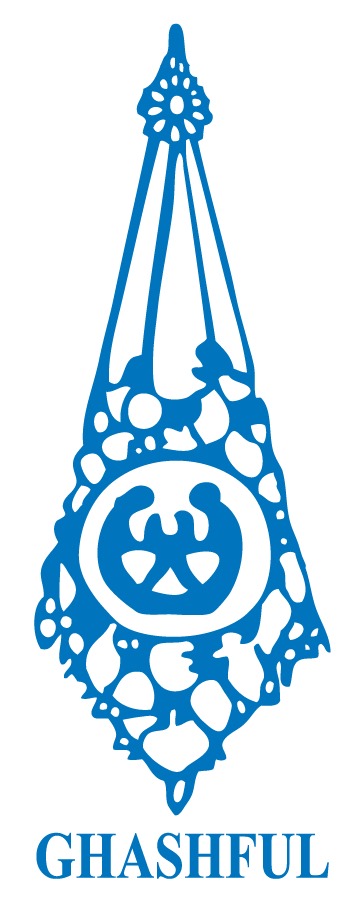“Education is the most powerful weapon we can use to change the world”- Nelson Mandela. Education is said to be the backbone of a nation. There is no country in the world which becomes developed with a low level of education. Again, there is no nation in the world which is educated but poor. So, development of a nation is directly related with education. Access to education is a fundamental human right. Our Constitution has also given this right to the citizens. Education is one of the key elements of human asset. It is also one of the principal sources of increased economic growth and it enhances the welfare of an individual and a family in the process of economic transformation. Education stands out as the best cost-effective means of increasing human capital and achieving sustainable economic growth and development. It is a key determinant for enhancing the productive capacities of individuals and aggregate level of economic growth. Education can also lessen the burden of poverty, because it helps explore the human’s aptitude. One of the major reasons for rapid economic growth of the East Asian countries (which are known as the ‘East Asian Miracles’) is that unlike other Asian or Latin American countries they gave greater priority to the primary and secondary education rather than highly subsidized higher education in the early stage of their development.
Among all the stages of education, primary education is undoubtedly the most important stage, because it is the initiation of process of making a person and a nation educated. It creates the literacy base of a nation. Childhood education is the sound intellectual, psychological, emotional, social and physical foundation for children to become more productive citizens in adulthood.Therefore in most developed countries primary education is considered to be more important than higher education.
The Government of Bangladesh has been emphasizing duly on education particularly on primary education since the independence though the strategies and level of implementation of different programs and also the education policies formulated in different times are often being criticized. It was also recognized that primary education is the most important part of education system, because it builds the foundation. So, unless making this base well built enough, achieving sustainable progress will not be possible. The Government is trying to promote primary education through all its effort. Primary education has been declared universal. It has also been made compulsory since 1994. The EFA (Education for All) program launched by the government is the sign of importance of primary education conferred by the government. Primary education is also considered to be an important element of social progress Bangladesh has made remarkable gains over the past two decades by ensuring access to education, especially at the primary level and for girls. The country’s net enrollment rate at the primary school level increased from 80 percent in 2000 to 98 percent in 2015, and secondary school net enrollment is now around 54 percent, up from 45 percent in 2000. Furthermore, the percentage of children completing primary school is close to 80 percent, and Bangladesh has achieved gender parity in access, in addition to dramatic decreases in disparities between the highest and lowest consumption quintiles at both the primary and secondary levels.
Ghashful started its education program since 1985. Since inception, Ghashful has been emphasizing on educating the diversified beneficiaries of different project to reach the target of building up a skilled, well conscious and self-reliant citizens with a view of making a remarkable contribution to achieve SDG. Materialize the vision of ensuring quality education leading towards a society with equity, dignity and security in all perspective. Ghashful has taken a number of initiatives to strengthen education program by incorporating a number of interventions.
Ghashful is implementing the Education programs in two catagories
- Formal Education
- Non-Formal Education
The interventions and activities of Ghashful Education Programs are as follows:
- Formal Education
-
- Ghashful Paran Rahman School
- Non-Formal Education
-
- Child Development Centre(CDC)
- Tutorial Assistance through ENRICH Program
- Adolescent Development Centre
- Second Chance Education
Ghashful Paran Rahman School- Educating the low income families of our community
Ghashful started its significant journey in 1972 with the commitment to build a self-sustaining and affluent country. Keeping our constitutional right in mind “Education for all”, Ghashful has been working with non -formal and formal education besides its other development work since its inception. The founder of Ghashful, Paran Rahman took the initiative to provide formal education for the children of the lower middle-class people, small entrepreneurs, Blacksmith, Truck drivers, Day labourers and people from different occupation in West Madarbari in Chattogram. In 2002 with local donation and self-finance she established “Ghashful Educare K G School” as a model for sustainable education by conducting formal education programs with the commitment of creating a conscious citizen and confident nation. It started its journey with 11 children in nursery and kinder garden. Later, the school is being run with good reputation with 223 students from Play to Fifth grade. This school has two different shifts. First shift is from 8.20 A.M – 10.30 A.M and the second shift is from 10.45 A.M – 2.00 P.M. Students for the school participates in the government approved Primary Education Completion Examination and passes with 100% success and different scholarships. Besides that, they also participate in various primary school level examination and competition and achieve different scholarships. Every Friday the school runs art school for the children. The students take part in various art competitions and wins prize. In 2015 after the death of Paran Rahman, her children renamed the school as “Ghashful Paran Rahman School” to remember her great work for the community.

